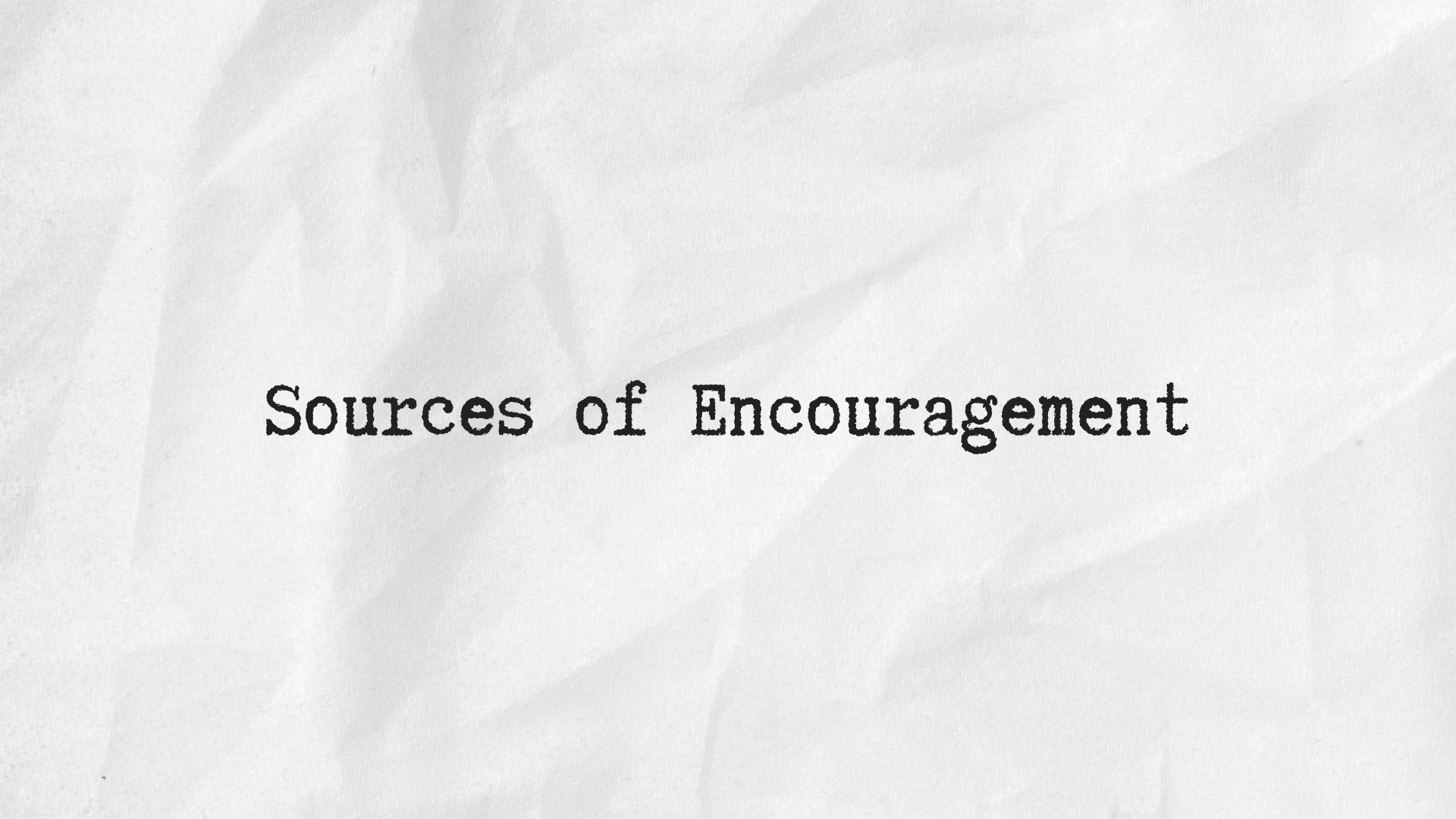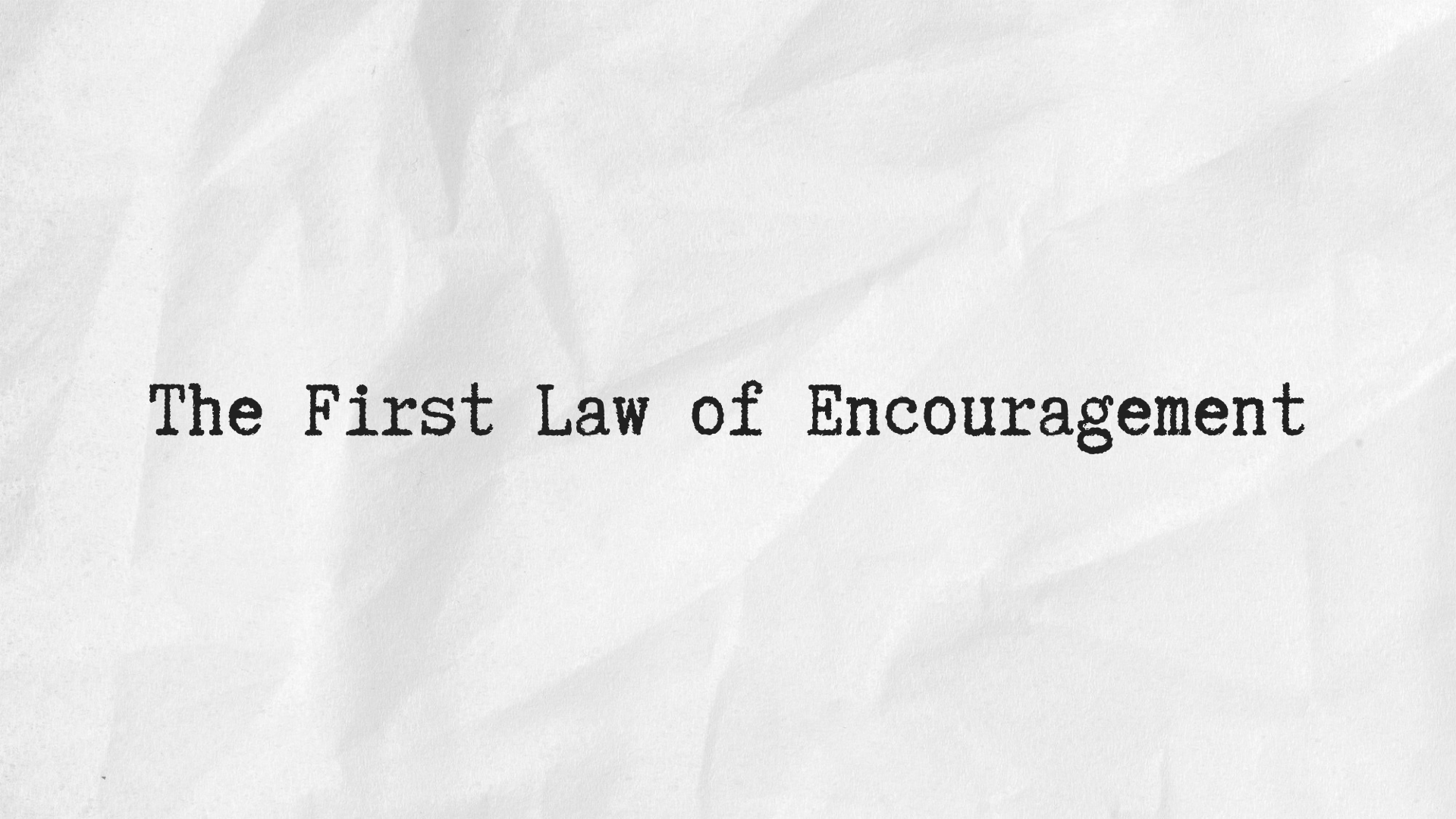My Boring Bible (part 4)
My Boring Bible (part 4) - Check Your Biases
In this our last installment for our “My Boring Bible” series, we want to take a moment and look at our biases.
Sometimes we come across things in the Bible that are boring.
Sometimes we come across things in the Bible that don’t make sense to us.
Sometimes we read things that in the Bible that step on our toes and challenge our behaviors.
Sometimes we even read things in scripture that offend our modern sense of what’s good and bad, right and wrong.
And it’s when we experience these things in scripture, especially the things that offend us, that has a tendency to reveal our biases. We live at a certain time, in a certain place, with a certain set of values, preferences, and expectations. And as shocking as this might be (though it shouldn’t be), our values, preferences, and expectations are not timeless, eternal, or even global. What we value here and now in our country is not a shared value everywhere across all time. And not only are our values not necessarily timeless and shared everywhere, they’re under constant revision.
What we must begin to see is that one of the surest ways to create disconnect between ourselves and the Bible is to read the Bible while demanding it yield and conform to our modern sensibilities, even though our sensibilities are constantly changing and did not even exist when the Bible was written.
When what the Bible says and what I believe are in opposition, rather than rejecting the Bible outright or changing the text to fit our current needs, this tension should be seen as an opportunity for us to engage the text with openness. As we’ve said in each blog, if this really is God’s word, shouldn’t it function as the authority in my life rather than my life functioning as the authority over the Bible?
This doesn’t mean we don’t come across things in the Bible that aren’t weird, strange, or even offensive. Read the Bible and you will absolutely come across those things! But when you do come across them, if this really is God’s word, then it deserves us taking the time to try to better understand the meaning behind those weird, strange, or seemingly offensives scriptures themselves.
With that in mind, let me give you a few things to consider when you read the Bible and come across something you just don’t know what to do with:
First, just because it’s in the Bible doesn’t make it Biblical. Something being recorded in the Bible doesn’t necessarily mean the Bible is affirming or condoning it. For example, the Bible talks about slavery, but that doesn’t mean the Bible supports, endorses, or encourages slavery. Just because the Bible speaks about a thing doesn’t mean the Bible supports that thing.
Second, whenever you read the Bible, be careful not to confuse permission for blessing. Sometimes God allows for something to occur that is less than God’s best, not because it’s the way with the most amount of good, but the way with the least amount of harm. You might think of this as spiritual triage. When you come into an emergency room, the treatment isn’t offered on a first come first serve basis – it’s based on need. It’s based on severity. The most serious injuries are given the most immediate care while lesser injuries might be stabilized, but not yet fully addressed. Some of what we see in the scripture functions in that way – some things required immediate action, while others were only stabilized in order to be addressed later on.
An example of this is how divorce is treated in the Bible. God did not create marriage with divorce as an option (Genesis 1:27-28, 2:18-25). Divorce was never a part of God’s creational good for his people. And yet, the Old Testament makes a concession for divorce. So, if divorce isn’t close to God’s heart, why does God allow for us to get divorced? When Jesus was asked about this very question, his response was, "Moses permitted (notice it’s permission, not blessing) you to divorce your wives because your hearts were hard. But it was not this way from the beginning” (Matthew 19:8) In other words, God allowed it, not because divorce is good but because as un-creational as it is, it was necessary to minimize greater harm. In a world that wrongly viewed women as property (notice this is a cultural value, not a creational value), the divorce certificate actually protected women in a culture that looked and felt very different than our own. (Check out this article, if you want to read more on this.)
And finally, we must simply acknowledge that there are things in the Bible that don’t make sense to us today, but absolutely made sense within the ancient cultures in which the Bible was written. For example, the Bible makes shocking claims that if a woman is raped by a man, that man must pay the bride price and marry her (Exodus 22:16-17, Deuteronomy 22:28-29). When we modern people read that we are horrified by the thought of a woman being raped and then having to marry her rapist – and we are right to think that way!
However, when we look at the context of the command, suddenly we see the spiritual triage taking place in the scripture. In the ancient world, women were viewed as property (a sign of the fall, not God’s creational good). A woman’s ability to be married was tied to her virginity. When a man raped a woman, he made it nearly impossible for her to marry. Therefore, the command is intended to prevent men from treating women like property without recourse. In fact, to further protect and honor women, the commands indicate that the father can take the bride price from the rapist and deny the marriage altogether. Again, what we’re reading here is shocking and not God’s heart or best, but in an ancient context, this was revolutionary. At a time where women were viewed as property and violence by men against women often went unchecked, the Bible sets unprecedented protections up to honor women and hold men accountable. (Here’s an interesting article that unpacks this further.)
Would any of us find this course of action acceptable today? Of course not. But I think we can all appreciate the heart and triage-like stabilization taking place in the text to honor women and hold men accountable. As I’ve stated multiple times in this series, we must take seriously that the Bible wasn’t written to us, but for us. There is much in the Bible that doesn’t make sense today, but that doesn’t mean it never made sense.
When we stand over the text as it’s lord, imposing our cultural values upon the scripture, and determining it’s worth and truthfulness based on what we value and hold true today, we do ourselves (and the Bible) great disservice. When European colonizers set out to find new lands, one of the tragic results of their activity is that when they came across new cultures, they often deemed them savages, barbarians, and primitives. Because the new people they encountered lacked the posh ‘sophistication’ these colonizers valued, it became the goal of the colonists not only to claim their lands, but to ‘save’ these poor people by blessing them with their European culture. Tragically, we know how many of these stories unfolded. Sadly, many are still experiencing the terrible fallout of those actions even all these years later.
I want to be cautious with my comparison here. If we ourselves are not careful, we can end up doing something similar to the Bible. I’m finding more and more people today treat the Bible as this savage, primitive, barbaric book in need of rescue. It wasn't true then, and it isn’t true now.
The Bible doesn’t need rescue.
The Bible doesn’t need saving.
The Bible doesn’t need deliverance.
When we allow our biases and cultural views to elevate ourselves over the Bible, we effectively become masters over the text, rather than being mastered by the text. The Bible doesn’t need us to change it – it seeks to change us.
And here’s the beautiful thing – when we begin to approach the Bible humbly, as students seeking to learn, rather than colonizers seeking to conquer, the Bible comes alive in ways we just can’t see.
Are there difficult passages of scripture? You bet there are.
Are there verses we don’t really understand? I can think of some.
Are there ones that offend our modern sensibilities? Yup – they’re there, too.
But at least it isn’t boring. Happy reading to you!
Sunday Morning Service Times:
9:00 AM Traditional
10:30 AM Contemporary
About:
Here at Deer Lake, we want to be the church IN the Community, FOR the Community to the glory of God and for the sake of the world.








